Traton: story of innovation and collaboration
Traton‘s recent Innovation Day was – as its name implies – all about new developments. However, it was equally about collaboration.
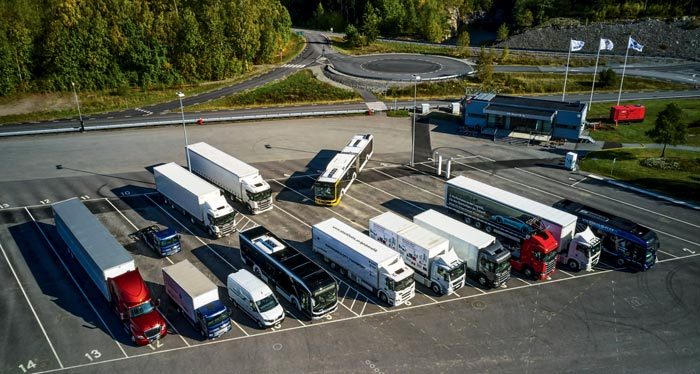
Photo: The pride of Traton Group from MAN, Scania, Volkswagen, and distant cousin Navistar International.
The Traton Innovation Day event in Södertälje, Sweden, was fascinating because it provided insight into the future of the group. And this will be all about innovation and collaboration, dished out in equal doses. It goes without saying that any major player in the commercial vehicle world must innovate in order to survive. Like most other companies, Traton is fully aware of this, as its CEO Andreas Renschler pointed out: “Innovation is a state of mind. Innovation means always striving to be better – to offer our customers and their customers added value.” The group showed an impressive range of highly innovative products from its three brands – MAN, Scania, and Volkswagen Caminhões e Ônibus – on the day. The star of the show was undoubtedly the Scania AXL, an autonomous truck that has no cab. Powered by renewable biofuel and designed for use in mines, quarries and construction sites, the extremely eyecatching vehicle uses cameras, radar, GPS receivers, sensors and Lidar to ‘see‘ where it is going. This appears to work extremely well; journalists attending the Innovation Day witnessed the AXL driving itself around quite happily, and even neatly manoeuvring around a parked car. But Traton clearly has no intention of resting on its extremely innovative laurels.

Photo: An International LT Series was on hand to show off the American side of the family.
And it made a number of major announcements in this regard. It intends playing a major role when it comes to e-mobility, for instance. In fact, Renschler said that Traton aims to “become the leading provider of e-trucks and e-buses”. He‘s putting his money where his mouth is too, devoting an increasing share of his research and development budget to this field and working towards a situation whereby – in the next 10 to 15 years – a third of Traton‘s trucks and buses can have an alternative drivetrain, most of them fully electric. Renschler is working off a strong base; Traton brands already hold more than 1000 electromobility patents. MAN has already delivered nine fully electric 26-tonne MAN TGMs to Austrian companies for testing, and its eTGE van is in series production. Plus, it‘s about to commence testing of autonomous trucks within the port of Hamburg and on neighbouring highways.
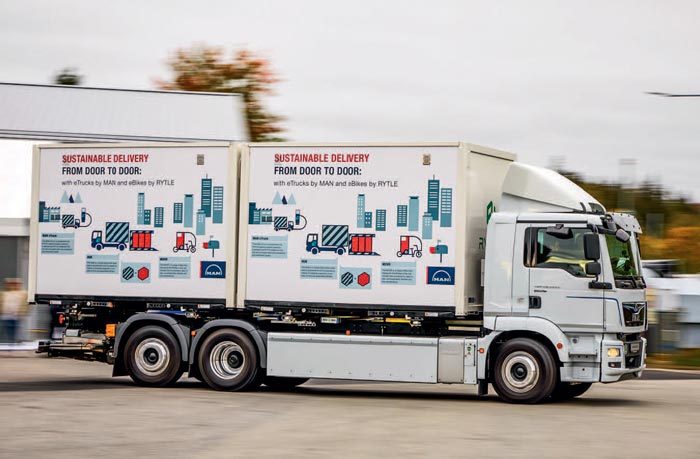
Photo: MAN has delivered nine fully electric 26-tonne TGMs to Austrian companies for testing.
At the Innovation Day, it was announced that Volkswagen Caminhões e Ônibus had signed the world‘s largest purchase intention agreement for e-trucks – 1600 trucks have been ordered by the Brazilian beer and beverage producer Ambev. The Volkswagen 10.7-tonne e-Delivery 11 – which boasts a 200kW electric motor that generates 2150Nm of torque – has a range of 200km and costs from two to two and a half times the price of an equivalent diesel. Not wanting to be left out of the e-mobility party, Scania is going to start operating an electrical and autonomous bus in the Stockholm metropolitan area later this year and it will soon start testing a battery-electric truck in Norway. But the Traton CEO clearly wants to do much better in the field of e-mobility and he‘s willing to invest big bucks in this area; at the Innovation Day he revealed that, by 2025, Traton will have spent a total of more than €1 billion (NZ$1.75 billion) in electro mobility. Another area of focus is digitalisation: by the end of 2024, Traton will have spent more than €1 billion on research and development expenditure in this area. It‘s already been hard at work on digitalisation, and one of the results will be MAN‘s New Truck Generation, which will make its global debut on 10 February in Bilbao, Spain. This was announced at the Innovation Day by MAN CEO, Joachim Drees, who noted that it will be the “most digitised MAN truck ever”. Drees revealed “it will set new standards in terms of user-friendliness as well as connectivity”.
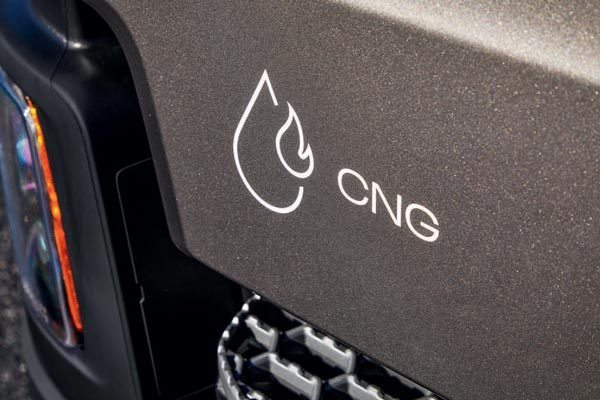
Photo: Alternative fuels are central to Traton‘s future focus.
Connectivity is an important area of focus too; Traton intend having more than a million connected vehicles on the roads by the end of 2025. All three brands are embarking on a joint connectivity journey; since the beginning of this year, most Scania and MAN trucks are already connected. Volkswagen has also (in October 2019) begun equipping its vehicles with the relevant group connectivity solution. Which brings us onto the next message that we got loud and clear at the Innovation Day: collaboration. We interviewed Drees, Scania CEO Henrik Henriksson, and Roberto Cortes, CEO of Volkswagen Caminhões e Ônibus during the event, and they all sang off the same hymn sheet, saying that their companies could all greatly benefit from collaboration within the group.
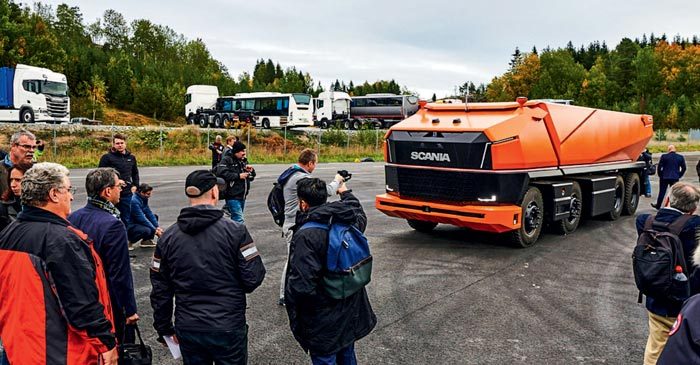
Photo: Star of the show – the autonomous Scania AXL.
Now some may find this concept strange. After all, in many markets, the brands are arch rivals. And they have vast cultural differences too. But, at head office level anyway, it certainly does appear as though they‘re quite happy to work together. Scania and MAN will even jointly work on the development of an all-new 13-litre engine that will probably be fitted to the new generation MAN as well as to future Scania models. The group is also already working on a common platform for autonomous driving. Plus, it‘s developing a common modular electric powertrain toolkit that will be used in the first series production all-electric city buses made by Scania and MAN in 2020. As Renschler noted, this collaboration makes sense. “Innovation doesn‘t occur in a vacuum. Engineers quickly realise that the range of new technologies cannot be implemented with one brand‘s budget.
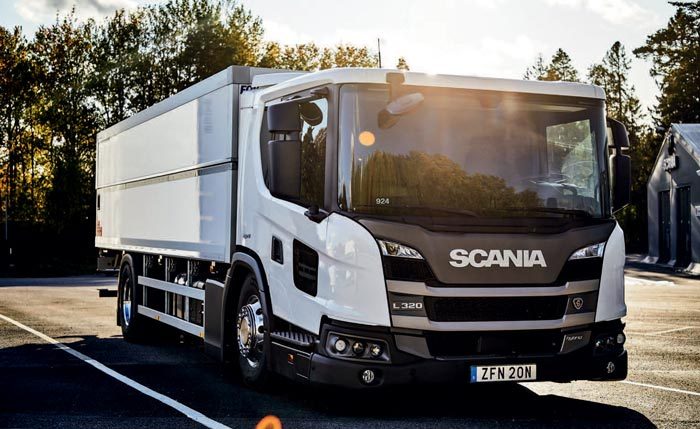
Photo: Scania and MAN will jointly work on the development of an all-new 13-litre engine.
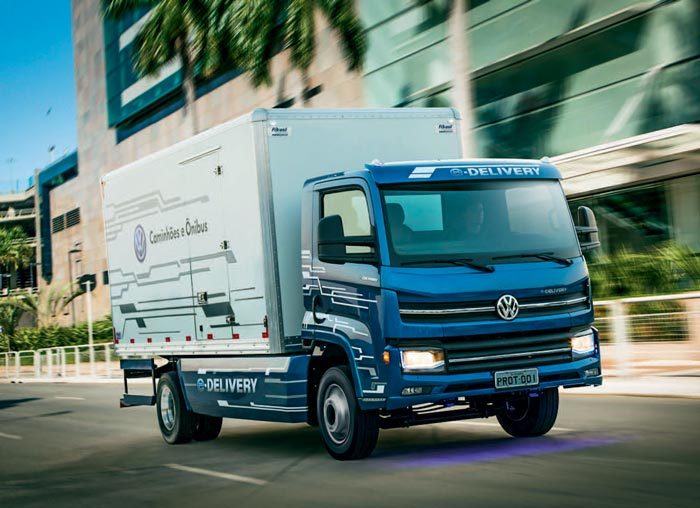
Photo: Volkswagen Caminhões e Ônibus has signed the world‘s largest purchase intention agreement for e-trucks – 1600 ordered by the Brazilian beer and beverage producer Ambev.
That‘s why cross-brand development partnerships are crucial for our success,” he stressed. And the brands certainly appear to be best buddies on all fronts. We wondered if this would extend to sharing trade secrets and so, perhaps somewhat cheekily, we asked Drees if Henriksson had seen his top-secret new truck. “But of course,” he responded with a big smile. Welcome to the new world of Traton – where innovation and collaboration clearly go hand-in-hand. Charleen Clarke is editorial director of South Africa‘s FOCUS on Transport magazine. She represents South Africa on the International Truck of the Year jury, judges the Truck Innovation Award, and has been writing about trucks for longer than she cares to admit.





